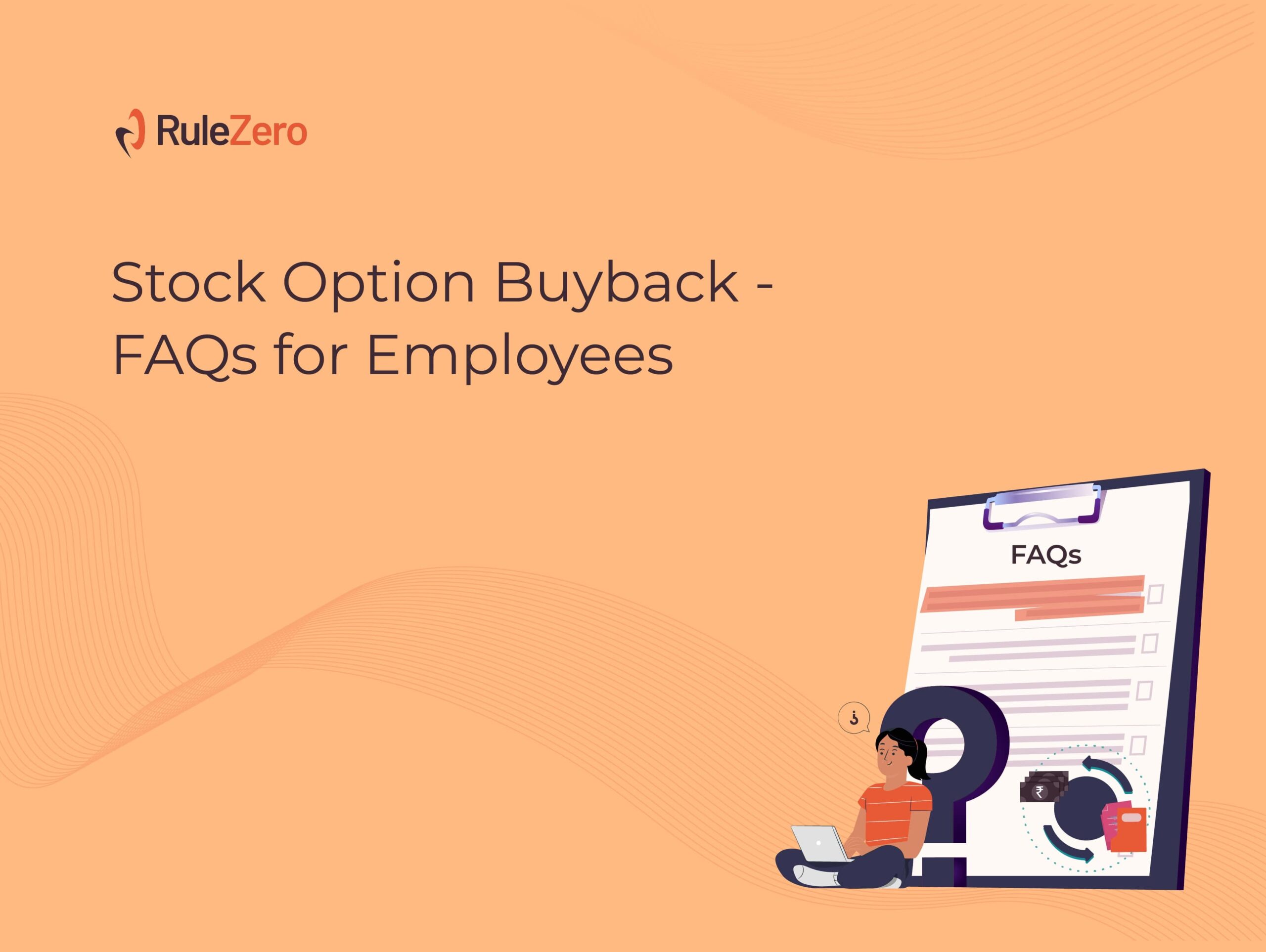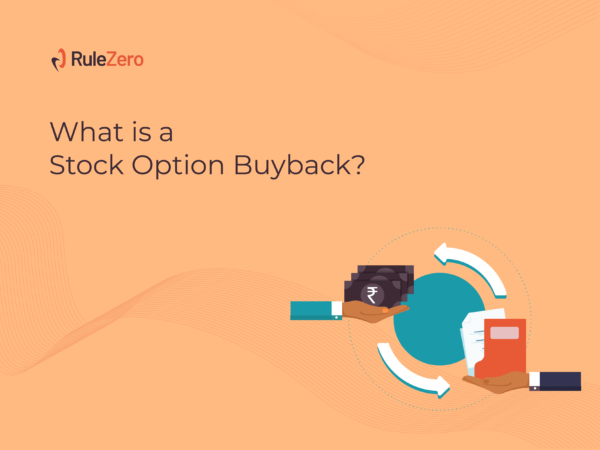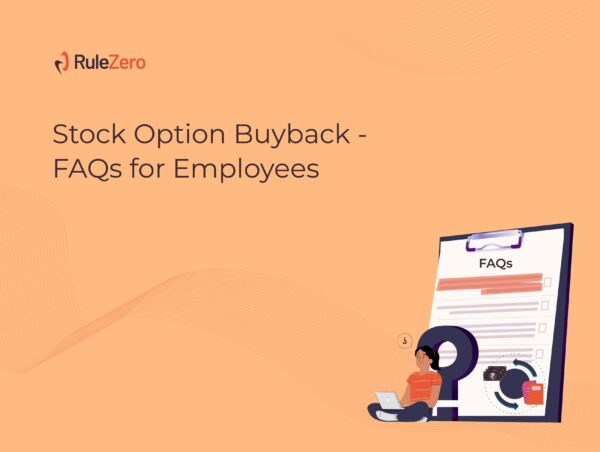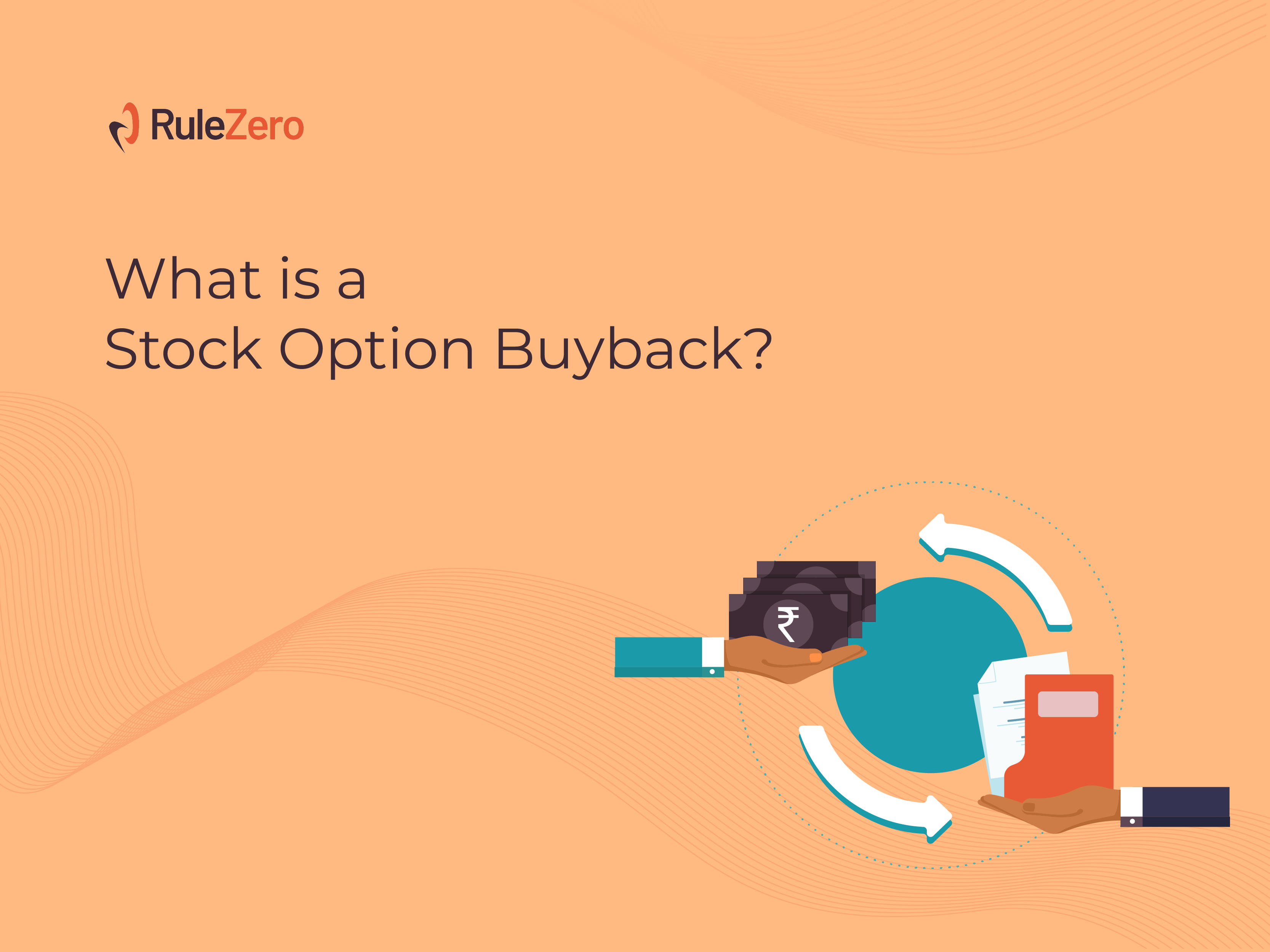Administration of stock options can be a complex process. Since buyback of options is one of the modes through which liquidity is provided to employees, companies must understand the concept and its execution well to avoid any pitfalls when conducting the buyback.
To help companies with this, we have listed ten frequently asked questions on option buyback.
1. How does buyback of stock options help me earn returns as an employee?
The price offered by your company to buy back the stock options is usually linked to the fair market value of its shares on the date of the buyback. Since the exercise/strike price in most cases is at par or below the buyback price, as an employee, you will benefit from the difference in both these prices. The difference in the two prices is treated as a perquisite.
For example, if the buyback price is INR 100 and the exercise price is INR 10, INR 90 is the gain you make (before tax).
2. How is the fair market value (FMV) determined?
FMV of the shares is based on whether the shares are listed on a recognised stock exchange in India.
- The FMV of listed shares is linked to the market price on the exercise date.
- In case of unlisted shares, the FMV is determined by a recognised valuer engaged by the company.
3. On what amount is income tax calculated in case of gains from a buyback of options?
In case of buyback of options, the difference between the pay-out price and the exercise price is considered as perquisite income in the hands of the employees. In FAQ 1, perquisite tax is calculated on INR 90. Tax will be paid based on the income tax rate applicable to the individual. Company deducts TDS at the time of making the payment to employees.
4. Is it mandatory to participate in an option buyback offer?
Largely, and considering the most prevalent practices, participation in a buyback offer is completely voluntary for employees. It is an offer made by the company and as an employee, you have no obligation to accept. If you feel that holding on to their options will result in earning more returns when the share prices go up later, you can reject the buyback offer. You also have the option to only surrender some of the vested options. In some cases, however, the company may buy back all the options it has offered to buy from you, provided this is not prejudicial to your interest.
5. What happens to my vested options if I reject the option buyback offer?
You can choose to accept or reject the option buyback offer. If you do not accept the offer, then the vested options remain as it is. You will have to wait for the next buyback program (whenever announced by the company), for you to participate and sell your options. However, in case of a compulsory buyback, you must surrender the vested options.
6. What happens to my options in case my employment is terminated by my employer?
Stock option plans dictate how stock options are treated in case of termination of employment by the employer. Separation of employees due to a termination usually results in vested options being cancelled. In such a case, there is no scope for buyback of vested or unvested options.
7. If I am no longer associated with a company as an employee, can I still participate in the option buyback offer?
Yes, buyback offers can be made to you as a former employee, if you hold vested options. Many times, companies may offer to buy back your vested options at the time of your exit, as this will ease matters for the company, from an administrative point of view.
8. Can I accept to only surrender part of the vested options I hold under the option buyback offer?
Most companies allow you to choose what percentage of vested options you want to surrender. For example, if a company has made an offer to buy back 50% of the vested options and you currently hold 100 vested options, then you can choose whether to surrender all 50 vested options or only make a partial surrender.
9. Is it mandatory for a company to buy back stock options?
No. A company plans buyback of options if it has sufficient cash reserves and wishes to provide liquidity to its employees.
10. Will I become a shareholder of the company after my vested options have been bought back?
No. You will not become a shareholder of the company, if the company buys back all your vested options.
11. Can I participate after the buyback offer period is closed?
No. The buyback offer is open only for a limited period. You must communicate your decision to surrender your vested options within the timeline indicated by the company, failing which the offer will lapse.
However, you could consider reaching out to your HR in case you have missed the buyback offer window.
12. What are the advantages and disadvantages of an option buyback?
Buyback is one of the most popular means, by which liquidity is provided to employees for the stock options they hold. Since companies these days are taking longer to go public, offering liquidity through a buyback builds confidence in employees, adds to their wealth creation, and keeps them motivated.
However, if the employees have surrendered all their options, buyback could be disadvantageous if the share prices go up in the future.
For more information on option buyback, refer to our blog on “Stock Option Buyback- The what, why and how”. For company related FAQ on option buyback refer to “Stock option Buyback: FAQ for Employers“









